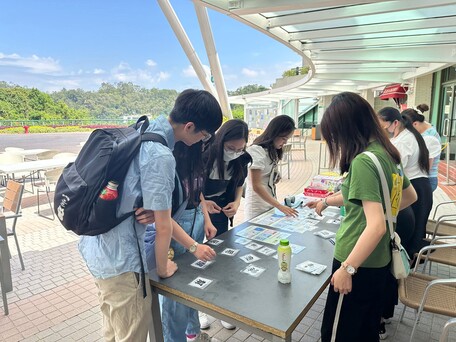Social Media
Boosting the good, reducing the bad: optimizing the influence of social media
Compared to physical interactions, social media connects many more people together. It builds relationships but also harms some users’ physical health; psychological, emotional, and social well-being; and interpersonal relationships.
However, scholars have not developed systematic evidence-based theories of the psychological, linguistic, and sociocultural mechanisms underlying social media use/misuse and online (mis)behaviours. This obstructs practitioners from developing effective strategies for reducing or alleviating these problems. Social Media Analytics Research Cluster (SMART) aims to cultivate a network of local and international researchers to create and evidence such theories via rigorous, interdisciplinary studies.
We will discern true vs. fake news, reduce cyberbullying and stigmatization, develop stronger identities, reduce fragmentation of attention, and identify the mechanisms that underlie (un)critical engagement with Key Opinion Leaders (KOL).
Sustainable Development Goals
In 2015, UN member states agreed to 17 global Sustainable Development Goals (SDGs) to end poverty, protect the planet and ensure prosperity for all. The research team contributes towards the following SDG(s):
Our theories and interventions will help (a) policymakers create and refine suitable legislation and policies, such as protective yet flexible social media laws; (b) leaders to select appropriate personnel and resources for implementation, such as principals forming teams of teachers to develop social media resources for education; and (c) organizations to disseminate tools, knowledge, and skills that enable, for example, corporations to detect fake news about their products or NGOs to support seniors in using social media effectively at home. This initiative empowers individuals to use social media safely, ethically, and effectively, in Hong Kong and beyond.
SMART studies will contribute to building a theory of social media use that encompasses communication, cognitive processes, relationships, and identity, examining its effects on daily well-being, its underlying mechanisms, and its moderating factors. We will develop and test educational interventions to improve users’ media literacy, ethical decision-making (e.g., detecting and sharing fake news), and responses to potentially unethical behaviours (e.g., cyberbullying and stigma).
Our findings will inform educational practices, equipping teachers and parents to guide their students and children to effectively use social media to enhance their social and emotional well-being. We will collaborate with community and government partners to advocate for policies that promote quality education.
SMART aims to benefit a diverse range of stakeholders, including students of various ages, families, schools, businesses, NGOs, elderly centres, and other communities. By identifying the specific needs of social media users, as well as teachers and parents of young users, educators, curriculum developers, and policymakers, we leverage our insights to enhance the well-being of social media users across different ages and contexts. To date, we have launched 6 social media platforms, each featuring over 25 posts and engaging more than 400 followers collectively. These platforms provide accessible summaries of our research that have reached over 2,300 views. Additionally, we organized interactive on- and off-campus events, which attracted over 700 participants, further raising awareness about social media safety.
Selected Publications
|
|
|
|






